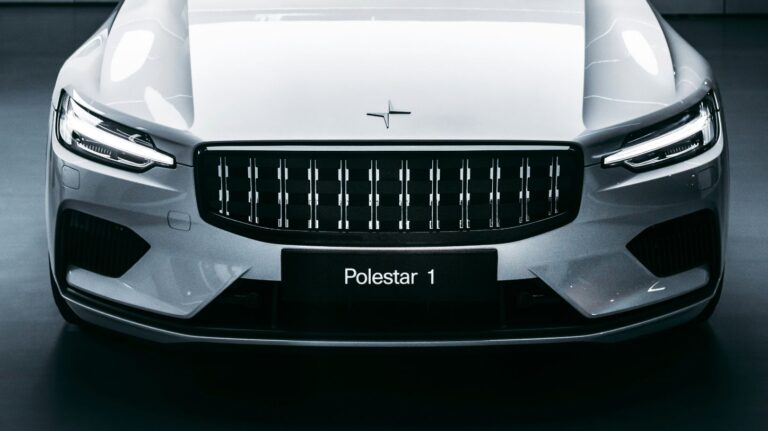Swedish automotive manufacturer Volvo has announced it is cutting funding to its electric sports car subsidiary Polestar, whilst also reducing its shareholding in the company.
Despite Polestar’s consistent sales growth in the market, registering 12,500 cars in 2023, up from 7,300 in 2022, shares across the EV industry have fallen globally.
Not only have Tesla shares fallen by 30% this year, but Renault recently confirmed it will not float its EV development arm Ampere due to a lower-than-expected valuation. What’s more, Volkswagen has delayed its plans to list shares in its battery manufacturing business.
For Volvo, which owns 48% of Polestar, shares in the electric sports car business have fallen 84% in the past year, with the business failing to turn a profit and being forced to reduce its delivery targets as other companies opt to produce higher-end EVs sold in smaller quantities and at higher prices.
READ MORE: UK’s current EV strategy inadequate, warns House of Lords committee
The Swedish company had recently expanded its vehicle line-up to include Polestar 3 and Polestar 4, with both new models arriving on UK roads this year. However, Volvo will now seek to sell its share in Polestar, which has left up to 450 jobs at risk of redundancy, to Chinese parent company Geely for a required US$1.3bn (£1.03bn).
Geely is “much more of a natural holding company” for Polestar, Volvo Cars’ chief executive Jim Rowan told the Financial Times (FT). While Polestar’s first two electric models, the Polestar 2 and 3, share technology with Volvo, its future models will be more closely based on Geely systems, he added.
According to Rowan, the decision to end funding for Polestar brings “clarity” for Volvo investors. Last year it lent Polestar about US$1bn, which will be repaid in 2028, reported the FT.
READ MORE: Volvo plans large-scale EV battery production in Sweden
Compounding matters is a recent decision by US car rental company Hertz to pause its plans to buy tens of thousands of EVs from Polestar this year, following a collapse in resale values in 2023.
In 2022, Hertz agreed purchase 65,000 Polestar cars over five years in a deal said to be worth US$3bn (£2.38bn) as part of its ambition for EVs to make up a quarter of its rental fleet by the end of 2024.
The company also struck a deal to purchase 100,000 Tesla cars, however, late last year, following a collapse in the resale value of EVs and citing higher repair costs than expected, Hertz said it would sell some of the Tesla cars it purchased and that it would not meet the 25% EV target.
Polestar has reportedly agreed to waive Hertz’s requirement to buy its allocated number of cars in return for Hertz refraining from selling its current stock too cheaply or too early, which would artificially deflate the market and harm Polestar’s overall sales.
READ MORE: Electric van manufacturer Arrival enters administration
Volvo’s decision to cut ties with Polestar comes as the Swedish carmaker attempts to increase its share price, which has halved over the past year, according to the FT, which reported that Volvo’s shares rose a fifth following the announcement.
The Swedish carmaker’s profits fell 17% to US$1.3bn (£1.03bn) last year including losses from Polestar. Revenues rose 21%, while Volvo’s margins rose 18% to 6.4% once Polestar was stripped out, wrote the FT.
Volvo said it was targeting an 8% margin by 2026, through higher margins on new electric cars, as well as cost cuts across the business.
Achievements and innovations in electric vehicles will be celebrated at the third annual CiTTi Awards, which will be held on 26 November 2024 at the De Vere Grand Connaught Rooms in London. Nominations officially open in March 2024. Please visit www.cittiawards.co.uk to learn more about this unmissable event for the UK’s transportation sector.





